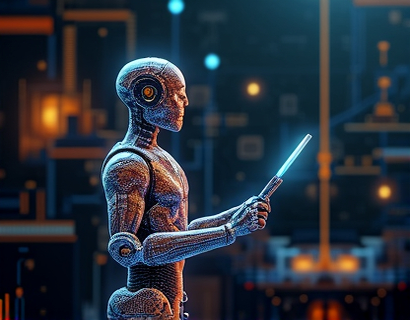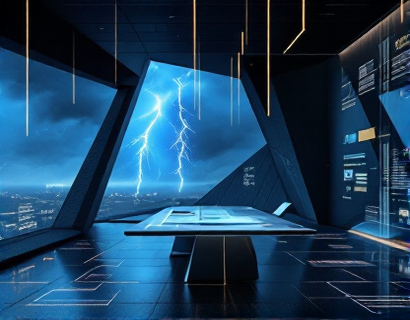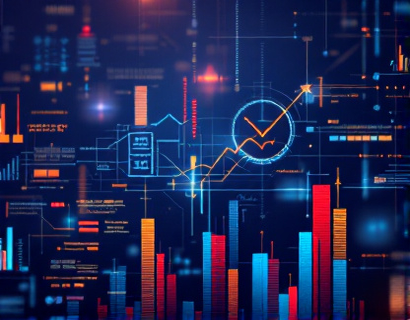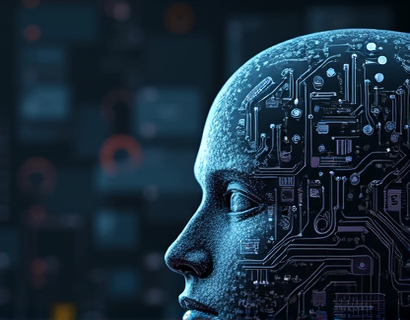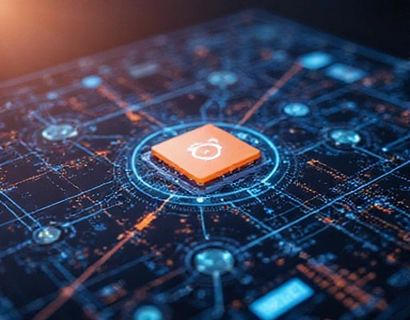Decentralized DAOs: Revolutionizing Web3 Governance with Community Empowerment and Transparency
The emergence of decentralized autonomous organizations (DAOs) marks a significant shift in how digital protocols are managed and governed. As we transition into the Web3 era, the need for community-driven governance, transparency, and scalability becomes increasingly vital. This article explores the transformative potential of DAOs in shaping a more interconnected digital landscape, emphasizing their role in empowering communities and enhancing collaboration.
Understanding Decentralized Autonomous Organizations
At their core, DAOs are organizations that operate through smart contracts on a blockchain. Unlike traditional organizations, which rely on centralized leadership and hierarchical structures, DAOs are designed to be decentralized and community-driven. This means that decisions are made collectively by members, often through voting mechanisms that ensure every voice is heard. The transparency inherent in blockchain technology allows for all transactions and decisions to be publicly accessible, fostering trust among participants.
The Importance of Community-Driven Governance
Community-driven governance is a fundamental principle of DAOs. In traditional organizations, decision-making power is often concentrated in the hands of a few individuals, leading to potential misalignment with the interests of the broader community. DAOs, on the other hand, empower all members to participate in governance, ensuring that decisions reflect the collective will of the community.
This participatory approach not only enhances engagement but also leads to more informed and balanced decision-making. Members can propose changes, vote on initiatives, and contribute to the direction of the organization. This democratic process fosters a sense of ownership and accountability, as members are directly involved in shaping the future of the organization.
Enhancing Transparency in Governance
Transparency is another critical aspect of DAOs that sets them apart from traditional governance models. In a DAO, all actions, proposals, and voting results are recorded on the blockchain, creating an immutable and publicly accessible ledger. This level of transparency helps to build trust among community members, as they can verify the integrity of the decision-making process.
Moreover, transparency reduces the risk of corruption and mismanagement. Since all transactions are visible, it becomes challenging for any individual or group to manipulate outcomes without detection. This accountability is essential for fostering a healthy organizational culture where members feel confident in the governance process.
Scalability and Flexibility of DAOs
As the digital landscape continues to evolve, the scalability of governance models becomes increasingly important. DAOs are inherently designed to be scalable, allowing them to adapt to the growing needs of their communities. This scalability is achieved through modular structures that enable organizations to expand their governance frameworks as they grow.
For instance, a DAO can start with a small group of members and gradually incorporate more participants as its community expands. This flexibility allows DAOs to remain relevant and responsive to the changing dynamics of their ecosystems. Additionally, DAOs can implement various governance models, such as quadratic voting or token-weighted voting, to accommodate different community preferences and ensure fair representation.
Real-World Applications of DAOs
The potential applications of DAOs are vast and varied, spanning multiple industries and use cases. Here are some notable examples:
Funding and Investment DAOs
Many DAOs have emerged to facilitate collective investment and funding. These organizations allow members to pool resources and make investment decisions collaboratively. By leveraging the wisdom of the crowd, funding DAOs can identify promising projects and allocate resources more effectively than traditional venture capital models.
Content Creation and Curation DAOs
Content creation and curation DAOs empower creators by enabling them to collaborate on projects and share revenue. These organizations can establish fair compensation models for artists, writers, and other content creators, ensuring that they receive recognition and rewards for their contributions.
Social Impact DAOs
Social impact DAOs focus on addressing societal challenges through collective action. These organizations can mobilize resources and expertise to tackle issues such as climate change, education, and healthcare. By leveraging the power of community, social impact DAOs can drive meaningful change and create a positive impact on society.
Gaming and Entertainment DAOs
In the gaming and entertainment sectors, DAOs are revolutionizing how communities engage with content. Players can participate in governance decisions related to game development, monetization strategies, and community events. This level of involvement enhances player loyalty and creates a more vibrant gaming ecosystem.
Challenges and Considerations for DAOs
While DAOs offer numerous advantages, they also face several challenges that must be addressed to ensure their long-term success. Some of these challenges include:
Legal and Regulatory Uncertainty
The legal status of DAOs remains ambiguous in many jurisdictions. As these organizations operate outside traditional frameworks, they may encounter regulatory hurdles that could impact their operations. It is essential for DAO participants to stay informed about the evolving legal landscape and advocate for clear regulations that support decentralized governance.
Security Risks
DAOs are vulnerable to security risks, particularly related to smart contract vulnerabilities. A poorly coded smart contract can lead to significant financial losses and undermine trust in the organization. It is crucial for DAOs to prioritize security audits and implement best practices to safeguard their assets and operations.
Participation and Engagement
Ensuring active participation and engagement within a DAO can be challenging. Members may become disengaged if they feel their contributions are not valued or if the governance process is overly complex. DAOs must prioritize community building and create inclusive environments that encourage participation from all members.
The Future of DAOs in Web3
The future of DAOs in the Web3 landscape is promising, with the potential to reshape how organizations operate and govern themselves. As more individuals and communities recognize the benefits of decentralized governance, we can expect to see an increase in the adoption of DAOs across various sectors.
Furthermore, advancements in blockchain technology and governance frameworks will likely enhance the functionality and effectiveness of DAOs. Innovations such as layer-2 solutions, interoperability between different blockchains, and improved user interfaces will contribute to a more seamless experience for DAO participants.
Conclusion
Decentralized autonomous organizations represent a revolutionary shift in governance, emphasizing community empowerment, transparency, and scalability. By leveraging the principles of decentralization, DAOs have the potential to transform how digital protocols are managed and create a more interconnected digital landscape. As we continue to explore the possibilities of Web3, it is essential to embrace the opportunities presented by DAOs and work collaboratively to shape a future that prioritizes community-driven governance and collective decision-making.









